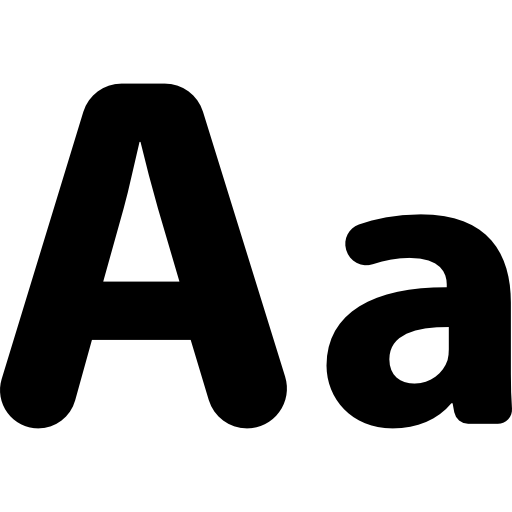Stating that the discussions about education will never end in any country in the world because everyone strives to be better, Minister Tekin said that they, too, respect the criticisms and draw policy propositions from these criticisms about the steps they need to take to achieve better.
Minister Tekin, who made a statement regarding the interviews to be held with teachers, stated that the interview was presented as a fiction created only for the purpose of conducting interviews. Reminding that this issue was on their agenda since 2015, Minister Tekin stated that they were preparing other regulations that would serve as a reference regarding the interviews in that year.
Stating that it is necessary to revise the teacher employment policy and the teacher training process in the new period, Minister Tekin said that it is not enough to appoint teachers with a multiple-choice exam, and that they are considering creating a portfolio, starting from the preference order of teachers for the undergraduate program, to their additional achievements during their undergraduate education, and carrying out the process accordingly. Noting that they published documents called 'Teacher Qualifications Certificate, Teacher Training Strategy Document', Minister Tekin said that these documents were discussed intensively by the governmental institutions at that time. He also stated that the interview process was a process in which the teacher evaluated him/herself in front of a commission after monitoring the whole process. Tekin said that the interview process after July 15 was unfortunately limited to only interviews and security checks.
"Teachers are interviewed after taking the KPSS exam and obtaining a ranking."
Stating that some of the malicious criticism started after he used an expression "an interview among an interview" in a broadcast last week, Tekin explained that what he meant in his statement was that the interview system that has been implemented so far is not fair as it could not be established as desired.
Underlining that he aims to rearrange the interview process as it was originally intended, Minister Tekin explained that currently teachers enter the interview after taking the KPSS exam and obtaining a score. Pointing out that the teacher candidate was given a score equivalent to the KPSS score and ranked with the logic of "avoiding injustice" and Minister said that they appointed teachers in approximately 128 fields whereas ÖSYM makes a teaching field knowledge test in 17 or 18 of these fields.
Minister Tekin pointed out that the response rate of the 75-question "Teaching Field Knowledge Test", which is taken by teachers employed to teach courses such as mathematics, physics, science and chemistry in schools, to see how well the teachers know their field, is 37 percent.
Giving examples of other tests with response rates such as 51 percent and 47 percent, Tekin said that these rates are low.
Minister Tekin stated that the curriculum approved by the Ministry's Board of Education and Discipline should be followed by teacher candidates.
Noting that the Ministry of National Education wants to employ teacher candidates who will share their curriculum and program with students, Minister Tekin stated that he wanted undergraduate programs with a successful profile, at least in terms of field knowledge. Pointing out that otherwise, the discussions on education policies would continue, Minister Tekin said that people who are not sufficiently knowledgeable in their field and do not follow the ministry's process on this issue may not be competent in implementing the ministry's policies and curriculum.
What will the interview process be like?
Pointing out that there were criticisms about the interview process he mentioned as well, Tekin reminded that teachers are appointed according to their interview scores after KPSS. Stating that they want to develop a mechanism in which the KPSS score is a 50 percent determinant in addition to the interview score, Tekin said that they want the KPSS score to be as decisive as the interview in the appointment. Minister Tekin announced that as they develop the 50-50 percent mechanism, they will share the guideline they prepared regarding the interview with the public once the appointment schedule is determined. Minister added that they will invite 3 times the number of teachers they will appoint based on their KPSS scores to interview in interview centers. Minister announced that they plan to conduct interviews in 30 metropolitan cities.
Stating that they have created a question bank electronically for each teacher candidate regarding the field they are applying for, Minister Tekin explained that the teacher candidate will be asked a random question electronically and will be given 45 minutes to answer.
Underlining that a candidate applied for a primary school mathematics teacher will be asked to explain how he/she will tell a 6th grade mathematics subject with his/her students as a lesson during this period, Minister Tekin said that they will measure the teacher candidate's communication skills and problem-solving skills with his students, that is, the jury members, as well as the candidate's relationship with the students in terms of attitudes and values.
"The candidate will not have any information about which commission he/she will be interviewed in."
Answering a question about preventing the preferential treatment mechanism, Minister Tekin underlined that he is not a person who would sacrifice a person' rights to make a decision in favor of another. Stating that President Recep Tayyip Erdoğan has also emphasized this issue many times, Tekin said that the thing they focus on most in the interview system is to complete this process without violating people's rights and without allowing any injustice or ideological favoritism. For this reason, Tekin underlined that the commission members will not have any information about the list of candidates that will be interviewed or vice versa.
Making a statement about the precautions they will take during the exam, Tekin said that in the 45-minute time period given, they will give the teacher 5 minutes to introduce him/herself and prepare for the exam, and 5 minutes to think about the questions to be asked and design his/her explanation. Minister Tekin stated that they will ask the candidate to write down the topics he/she explained in the interview on an exam paper and as a precaution in case of a legal procedure. Minister Tekin said that the candidate will submit his/her own answers and a text signed in his/her own handwriting as a precaution against any legal situation that may arise. Minister added that the camera recordings are another precaution they will take during the exam.
"We are open to suggestions"
Emphasizing that he is open to suggestions regarding the process, Minister Tekin stated that recruitment is available through interviews for all professions, including diplomats, district governors, judges and police officers, and emphasized that he positions teachers in a very dominant position.
Stating that the lack of selection mechanism in teaching, may cause misunderstanding among teachers, the Minister stressed that they want to recruit teacher candidates by appointing as many as possible. Explaining that they have material or moral responsibilities when choosing a candidate. Tekin noted that he feels responsible both according to positive law and their intellectual structures.
"The issue of class failure was brought to the agenda as a common idea of teachers."
Making a statement upon being reminded of the class failure in high schools, the Minister said that this issue was brought to the agenda as a common idea of teachers. Underlining that teachers agree that students passing the class without any barriers causes problems in terms of the academic knowledge and reputation of teachers, Minister Tekin said that this request expressed in the teachers' room was already one of the measures that the Ministry will take in the short term.
Making a statement regarding the question about the exam system, the Minister said that a mechanism that will remove the exam pressure, including the transition between levels, should be implemented. Reminding that President Recep Tayyip Erdoğan also underlined this issue at the Opening Ceremony of the 2023-2024 School Year, Tekin said that children should be saved from the exam pressure.
Minister Tekin said that it would be right to make a statement after the relevant preparations are completed. Minister underlined that they want to determine the students' own talents and abilities at the appropriate ages and direct children to secondary and higher education institutions according to these abilities. In this context, Tekin called on parents and asked them to leave their children free to choose professions in which they are competent.
"There are no registration fees, donations or any of these in our schools."
Minister of National Education Tekin said that he agreed with the criticism that the budget they sent on a school-based basis met the needs of the schools at a minimum level. Stating that they have met the minimum needs of 74 thousand institutions, but different needs may arise in each school, Minister Tekin said that they are trying to support the schools in this regard as much as they can. Secondly, while the student does not have the right to enroll in a school according to the address-based population registration system, Tekin said that they put pressure on the school and the school administration. Adding that there are parents who offer donations in this sense, Minister Tekin said that there is a lot of pressure done by parents on this issue. Pointing out that all these brought about these discussions, Minister Tekin said that there is absolutely no application such as registration fee or donation in their schools. He stressed that the school administration does not have the right to make such a request as well.
Stating that there are two administrations in schools, namely the school management and the parent-teacher associations appointed by the Ministry, Tekin stated that sometimes there are requests for improvement above the standards sought by the Ministry in the school where parents are the head of the family association. Minister Tekin stated that although they do not have the opportunity to conduct inspections such as routine parental supervision, they carefully evaluate the complaints received on these issues through the Ministry inspectors and address this issue.
"We did not reduce or eliminate elective courses, we categorized them"
Making statement upon the allegation that the number of courses in the field of art and language was reduced in elective courses and the duration of religion courses was increased, Minister Tekin emphasized that choosing all three of the elective courses as mathematics, physics and chemistry is problematic in terms of the pedagogical development of children and causes the child to alienate him/herself from school. Minister Tekin stated that even if they did not remove it completely as the Ministry, they turned only one of these courses into a supplement to other courses, He said that they wanted the student to choose only one of the mathematics, physics and chemistry courses and choose the remaining two elective courses in other fields. Stating that they divided the elective courses into two categories, Tekin emphasized that they want to encourage students to take one course each from culture, art and sports in addition to courses that reflect the basic values of the society. Minister Tekin underlined that they did not exclude any elective courses from the system.
Stating that they added additional elective courses such as the proprieties, family, sports education, art education in Turkish social life, Minister Tekin said that by categorizing the elective courses pool, they separated academic courses, courses on social values, and courses related to arts and sports. Tekin stated that they want the students to choose one course from each category.
Answering the question about the inability to teach foreign languages, Minister Tekin underlined that he was determined to solve this problem. Referring to the research they conducted and the reports they prepared regarding what could be the source of this problem, Tekin stated that the total duration of foreign language lessons taken by a student throughout his/her education life is above the average of OECD countries, almost double. The Minister added that there is no problem with the educational materials.
Pointing out that the first condition for learning a foreign language is to provide an effective mother tongue education, Minister Tekin said that children should first be taught their mother tongue through 4 skills and then they should focus on foreign languages. Stating that they focus on mother tongue education in primary schools, Minister Tekin said that the latest Regulation on Assessment and Evaluation they published focuses entirely on this matter. Emphasizing that one of the issues they think is lacking in academic studies is whether the foreign language education is offered to the right age group, Minister Tekin commented that concentrating on foreign language education in secondary education institutions is a deficiency. Minister Tekin also said that as the date of the exams for the transition between levels approaches, the child acts under the pressure of learning a foreign language due to exam stress.
When asked whether it would be possible to close schools and switch to online education if Covid- 19 Eris Variant cases start to appear, Tekin said that it is not possible to enter a process such as closing schools and returning to the online system. Stating that they will keep schools open as the Ministry, Tekin noted that they will improve policies regarding health-related measures.





























